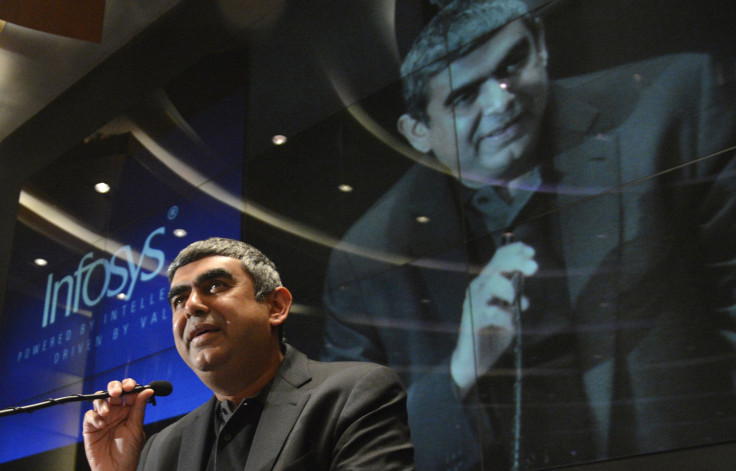Infosys Seeks More European Acquisitions, Executives Say Company’s Recovery Plan On Track

Infosys Ltd. (NYSE: INFY), India’s second-largest IT services provider, will likely look at acquisitions in Europe with a greater sense of urgency in the second year of its three-year recovery plan, top executives told investors on Monday.
The Bangalore-based company, under new leader Vishal Sikka, is also looking to innovate and industrialize its bread-and-butter outsourcing business -- automating large chunks of data center management, for instance -- to differentiate and free itself for higher-margin services, Chief Operating Officer Pravin Rao said.
“Irrespective of the macroeconomic environment,” there is growing momentum of companies in continental Europe to be “more open” to awarding IT contracts to Indian service providers, Rao said at a conference organized by brokerage CLSA, in Hong Kong.
Britain is already the second-largest market for India’s top IT providers, but language and cultural barriers in countries like France and Germany, which have a strong preference for dealing with local sales people and consultants, and more restrictive labor laws, have typically prevented Indian IT companies from making serious headway in these markets.
Many European companies “have never experimented with pure-play players like us” Rao said, referring to India-based companies specializing in IT-offshoring, adding that acquisitions have begun to change that, especially in the last two years. Therefore, purchasing local companies to quickly build presence will be a “critical element” of Infosys’s strategy in Europe, he said.
Chief Financial Officer Rajiv Bansal added: “Continental Europe is one area where to build up your local talent and local pool, if we have to do only through organic means, it would take much longer time, so we would definitely look at companies with front-end there.”
Bansal is also chairman of Infosys Lodestone, a subsidiary created out of Lodestone Holding AG, the Zurich, Switzerland-headquartered consultancy that Infosys purchased in 2012, adding some 750 specialists in business management software.
Bansal said Infosys now had much greater control over the cost of doing business compared to about three years back, allowing the company to take faster decisions on investments such as acquisitions. Infosys has no debt and close to $5 billion in cash reserves.
“Not doing anything is not a choice anymore,” Bansal said.
A strategy to chase a greater proportion of revenues from proprietary software distracted Infosys from IT outsourcing -- maintaining computer systems and software applications, an increasingly commoditized area -- costing it market share and predictability of business.
CEO Sikka, former head of technology at business software giant SAP SE (NYSE: SAP), was appointed to lead Infosys by founder Narayana Murthy, who articulated a three-year plan in June 2013. The plan comprises reducing costs, winning more large outsourcing contracts, and fulfilling those orders more effectively.
Sikka has started with attempts to get Infosys’s more than 160,000 staff more involved in the turnaround -- attrition, at 19 percent, is the worst among the top three Indian IT firms -- and plans to use at least $100 million to engage with technology startups, whose intellectual property could help accelerate Infosys’s growth.
Find the link to the archived video of the investor conference here.
© Copyright IBTimes 2025. All rights reserved.






















